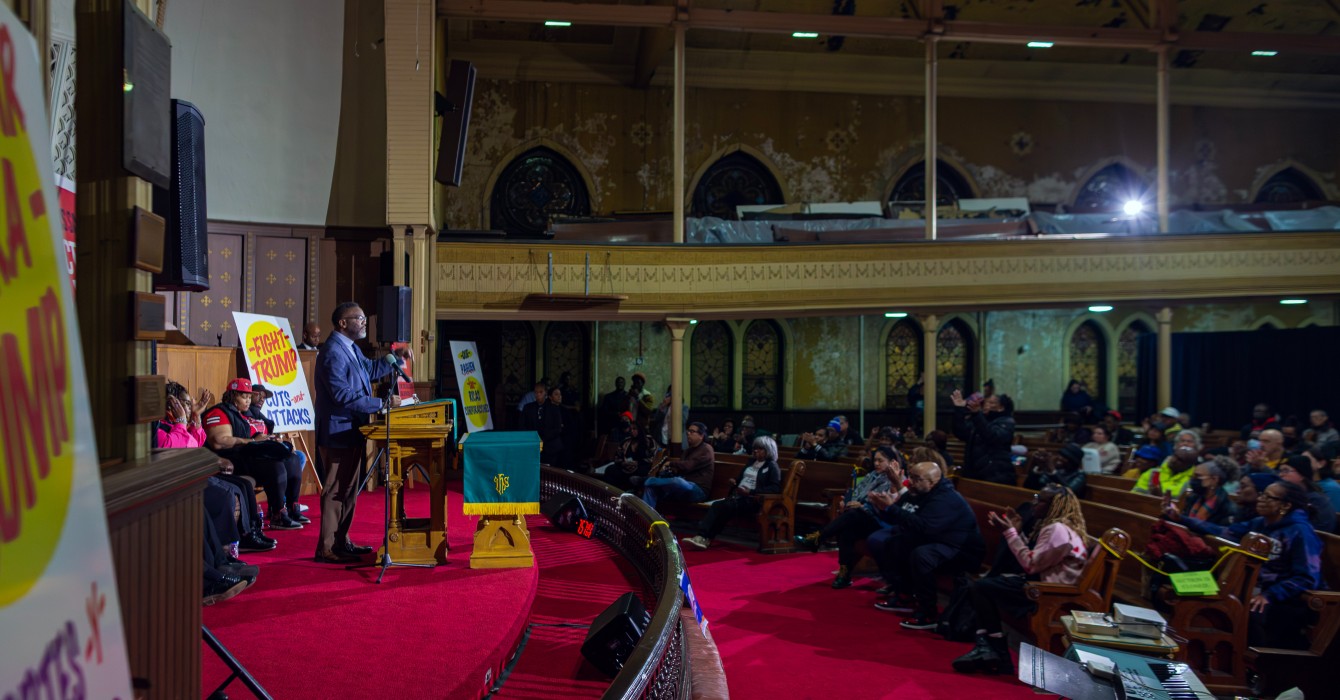Ash Wednesday is still difficult for me to embrace. The churches of my youth did not follow the seasons of the liturgical year. I was in midlife before having ashes imposed, and in nearly four decades of ordained ministry, I have never imposed them.
The Ash Wednesday experience gives me flashbacks to the symbols that the evangelists of my home church would wear or give away -- religious-themed bracelets, buttons and the like. Yet I am now surrounded by mainline Christian colleagues who find Ash Wednesday deeply resonant, so I try my best to appreciate its meaning.
Repentance is something that I do understand. Each Sunday worship service at my Baptist home church ended with an altar call. In every service, worshippers were urged to come to the front of the sanctuary to confess our sins, accept Christ as Lord, unite with the church and consider full-time service.
The call to confess was the loudest message. The church celebrated each public decision to confess and accept. The highest of honors was bestowed on those who committed to leave home to become foreign missionaries. Today, when worship ends without a public opportunity to respond to the gospel through confession and dedication, I feel as if something is missing.
When I hear friends refer to the Ash Wednesday service as the most significant service of a year, they may be pointing to a similar sense that the veil between God and us is pushed aside as we offer confession. We see what God has always been offering: acceptance and love. The imposition of ashes makes face-to-face and physical what was represented in my church by “walking the aisle.”
The regular encouragement to confess and repent has made its way into my practice as a leader. This is especially true in times of high stress and change. I find myself apologizing time and time again. When I have been leading a startup effort, genuine apologies and requests for forgiveness are offered daily.
Years ago, “Breaking the Glass Ceiling” co-author Randall P. White consulted in an executive search for my boss. As we discussed expectations and the required experience, he noted that leaders develop quickly and deeply in two environments: startups and turnarounds. He urged us to consider such experience as more valuable than a calculation of years in a job.
Having been involved in several startups, I have seen what he meant. In such environments, everything happens quickly. So many things go wrong and have to be corrected that the setting is a perfect prescription for both learning and repentance.
When trying, failing and backing up are required over and over again, colleagues can lose patience and eventually confidence in their leaders. An apology is a way of acknowledging the pain caused by mistakes and naming what is being learned. In the early years of Leadership Education at Duke Divinity, I needed to apologize to someone for something every day.
I did not have a “strategy” to apologize every day. I was not trying to win people over. Each day, I realized that I had made a mistake or that a person had been asked to do an impossible task or that we had been overly optimistic with a stakeholder about what was possible. For each occasion, a fresh start was required. My understanding of apology was formed by the altar calls of my childhood and youth.
When serving as a team leader, I have found genuine apologies to be a crucial practice. The recipient of the apology knows that something is wrong and can feel isolated by the offense, as if no one else understands it. The apology acknowledges the problem and the pain; it helps distinguish between what “should be” and what “is.” And the apology takes a step toward improvement.
The apology can also mitigate the development of cynicism. When involved in a startup, I have learned to pay attention to how often I am apologizing. One mark that the system is improving is the need for fewer apologies.
This sort of repentance works best when the team leader takes responsibility for more than his or her personal mistakes, confessing the failings of the system as well. Any statement of what went wrong will surely include factors outside the team leader’s control. Yet statements that simply blame the leader can be a way to pass the buck.
There’s a difference between an explanation and an apology. An apology requires that the leader take responsibility for what has happened and acknowledge the pain caused, as well as all that contributed to it.
I wish that I could claim that once an organization is going, the need for repentance and confession becomes rare. I cannot. I make major mistakes in every stage of organizational development. I have not yet served in a place where apologies were not required.
The somber tone of an Ash Wednesday service and the heightened emotion of an altar call both remind me that repentance is serious business. Sin often leaves scars on the sinner and those around them. Apology might be a strategy or a technique in some circles, but as Christians, we have learned that confession is part of transformation.
The imposition of ashes is foreign to me, but the symbolism of branches from Palm Sunday being burned, their ashes then gathered and blessed, is powerful. The call to repent is needed. The church coming together across many traditions and focusing on repentance on the same day is a significant witness.
The power of a ritual is made real in how it shapes our daily practice. I pray that my participation in Ash Wednesday this year will encourage my daily and weekly practices of repentance and open me to participation in the resurrection and new life that is still unfolding.






















